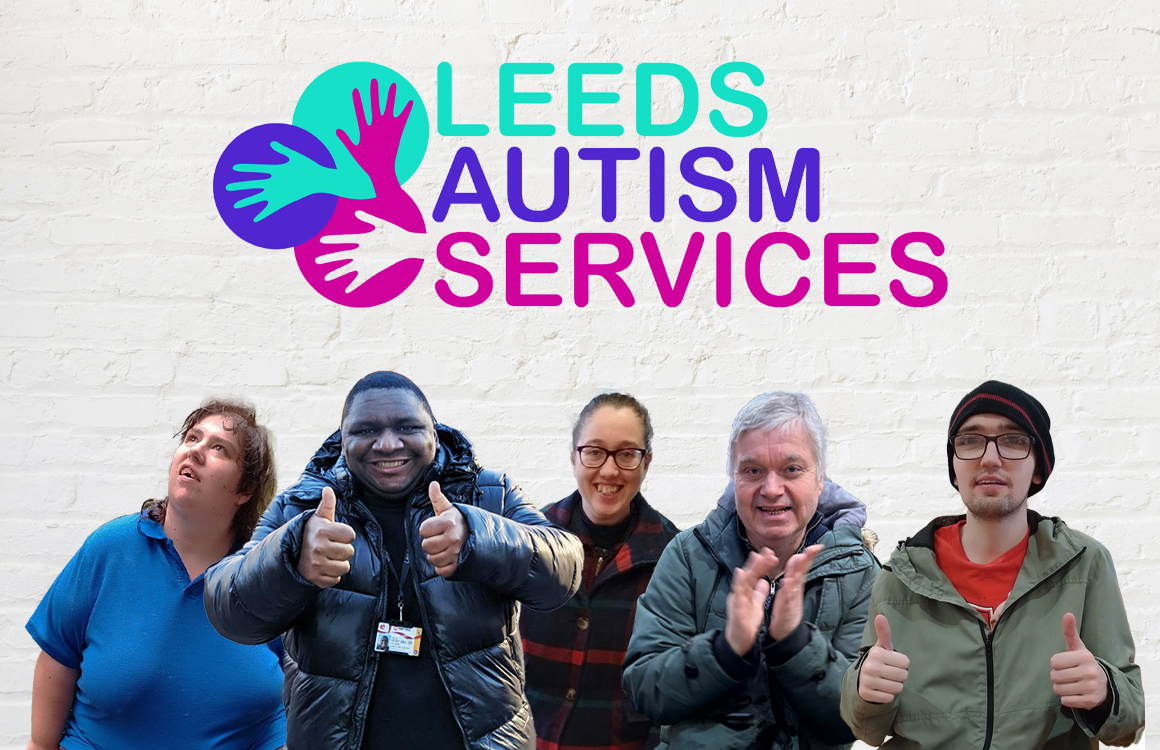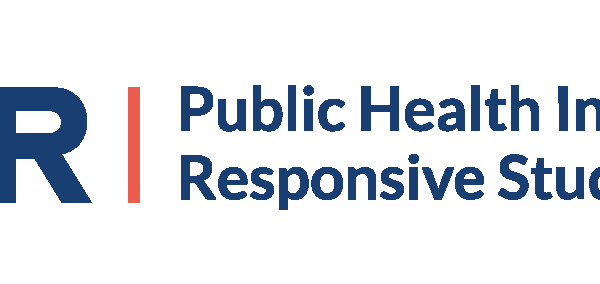Leeds Autism Services is a local charity dedicated to helping to create a more autism-friendly society. They have been helping autistic people in Leeds to reach their true potential for over 30 years.
Leeds Autism Services joined the Leeds Mindful Employer Network last year and signed the Mindful Employer Charter. In the run-up to Neurodiversity Celebration Week, Mindful Employer Project Coordinator Leigh caught up with Leeds Autism Services’ HR Manager, Brooke Asquith and the CEO Pete Hughes. They discussed the organisation’s approach to staff wellbeing and the support they can offer local employers. They also gave some top tips for marking Neurodiversity Celebration Week in a way that could impact positive change all year round and provided actionable advice and tools employers can implement in their workforce to support employees with autism.

Firstly, please tell us a bit about you and Leeds Autism Services
Brooke: I’m the HR manager here at Leeds Autism Services. I have been with the organisation for just over 2 years and can honestly say it is the best place I have ever worked. Here, we believe that by promoting neurodiversity and a better understanding of autism amongst the wider population, we can help to achieve real change in the experiences of autistic people.
We aim to work with organisations within the private and public sectors to educate, enlighten and show the benefits that people on the spectrum bring to our communities. We also aim to work with businesses or service providers to make their products more accessible to people with autism thereby promoting wider acceptance and accessibility for people on the autistic spectrum.
Most of the work we currently undertake is providing direct support to autistic adults. However, as a Leeds-based autism charity we view ourselves as having a wider responsibility towards autistic people within our area.
Why is staff mental health important at Leeds Autism Services?
Brooke: The role of a support worker comes with a lot of responsibility and whilst it is hugely rewarding it can also be extremely challenging. We want our staff to feel supported, empowered and part of an inclusive and caring workplace. The people that we support have highly complex needs, therefore it is really important that we do everything we can to support staff mental health. That way our staff feel able to be the best they can be in their role, and we are in a positive position that allows us to provide proactive support.
Tell us about your role in supporting staff wellbeing
Brooke: My role is to ensure that we are providing all the support we can to our staff. This can be difficult in the care sector given financial constraints and is one of many reasons why we were so keen to work with the Mindful Employer Network. The support we provide is wide-ranging and can be anything from having a chat and a cuppa, regularly checking in with each other through to helping staff access counselling and Access to Work. I like to think we all look out for each other, and we have a strong culture of openness meaning staff feel able to share their concerns with us, whether that be personally or in work, and we will always work together to find a way forward.
What are you most proud of in Leeds Autism Services approach to staff wellbeing?
Brooke: I am really proud of the way in which we prioritise staff wellbeing. No decisions are made without the impact on staff being taken into account and the options we have to ensure people are supported in the best possible way.
We also take a personalised approach, and recognise that what works for one person won’t work for another. This means we have developed a number of tools and have a variety of different avenues open to people so that they can access help in a way that works for them. Examples of this include weekly check-ins with managers, having mental health first aiders available and a ‘Wellbeing and Mental Health Hub’ on our intranet which provides advice around where to get help and proactive steps that we can all take to look after our mental health.
What are your priorities for the months ahead?
Brooke: My priorities are to continue to build on the great work we have done. This will be achieved by gathering feedback from staff, making changes and improvements wherever needed and to also continue to work through the 10 Steps from Mindful Employer, reviewing what we have in place with a critical eye.
Why should employers in the network mark Neurodiversity Celebration Week and what kinds of activities would you suggest as most worthwhile?
Pete: There are lots of things employers could do to mark the Neurodiversity Celebration Week: arrange some awareness training for your colleagues, have a poster or leaflet campaign to raise awareness and understanding, hold some fundraising activities for a local autism charity (hint, hint), or organise a neurodiversity quiz – because everyone loves a quiz, right?
We think the best thing you can do though, is commit to a change you are going to make within your organisation so you’re carrying something forward beyond the celebration week. This is the kind of thinking that will demonstrate you have a genuine commitment to supporting neurodivergent colleagues, rather than just making a tokenistic gesture during a week of celebration.
You may want to use the week to launch a company autism and neurodiversity policy, or to incorporate a specific section in your organisation’s EDI policy. You could commit to the creation of a quiet area that colleagues can access when they are feeling overwhelmed. You might choose to offer ear defenders, noise reducing ear-plugs, or sensory fidget toys to any employee who would like them. The most important thing is that if you are making a small change each year to celebrate the week, you’ll be making a positive difference to the culture of your organisation which will improve the working lives of all your colleagues, not just those who are autistic or neurodivergent.
What should an employer consider when looking to make their business more inclusive and supportive of employees with autism?
Pete: Culture really lies at the core of making a genuine inclusive space for autistic employees, and as any business leader knows, changing culture is one of the most difficult things to achieve, but we also know it can be done, and it is hugely rewarding when we pull it off.
With that in mind, our first tip would be to spend some time listening to autistic voices. Autism can be a complex thing to get your head around, particularly as every autistic person is so different, so the best way to learn about what it actually means to be autistic is by listening to as many autistic people as you can. The Chris Packham (Inside Our Autistic Minds) and Christine McGuinness (Unmasking my Autism) documentaries on BBC iPlayer are a great place to start, and there are loads of videos autistic people have made to describe their autism available on YouTube.
Think about getting some autism awareness training for your employees, at all levels, so they at least have a baseline understanding of what autism actually is, and to demonstrate your commitment to supporting autistic people in the workplace.
In terms of workplace culture, it’s also important to consider how communication works within your team. A lot of the stuff we are taught as good practice when working with our employees just isn’t good for autistic people. One example would be the use of open questioning, which can be really difficult for a lot of autistic people because it can feel so abstract:
- “How are you doing?” – What, now? In general? Over the last six months?
- “What do you want to do today?” – Go home? Be left alone? Are these things even an option?
- “How can we support you?” – Just keep paying me but stop making all these demands? Actually, I’m sure I’m not allowed to say that, but now I’ve got to try and think of an answer to this as well as coping with everything else!
Autistic people often have difficulty in weighing up what the ‘appropriate’ response is in any given social situation, so being given a bit more context and a ‘menu’ of options to choose from can be a massive help.
Autistic people also need information, that other people may just instinctively know. Neurotypical people have a real knack for ‘reading between the lines’, but this can be a huge challenge for autistic people. When you are communicating with your team, always strive to provide reasons and a bit of background to any upcoming changes or requests you are making. Instead of “you need to come to this meeting”, try “you need to come to this meeting as we’ll be sharing some important information that will help you at work”.
A direct and a very honest approach is always helpful too, and while this may feel blunt at times, you shouldn’t let that worry you too much. One of the biggest sources of anxiety, for all employees and not just those who are autistic, is not understanding what is happening around them, or feeling like they haven’t fully understood a piece of information. Sometimes a little bit of (polite) bluntness can go a long way.
Staying on the subject of communication, think about any written materials you use at work, and whether you could make it more accessible. Making documents more accessible doesn’t have to be difficult; printing in a plain font, size 16, on coloured paper won’t just help autistic people, but will assist other neurodivergent colleagues such as those who are dyslexic.
The environment and how people use it can be another important consideration. Do employees have a quiet space they can escape to? Do they know how and when this can be accessed? Can we cut down the noise, or restructure how breaks are managed? Is the environment tidy? What kind of lights, furniture, keyboards are we using? If it’s going to be too difficult or expensive to change the environment, can we offer our employees tools to help them cope such as noise-reducing earplugs, anti-glare glasses, or fidget toys they can use at their desk?
Perhaps most importantly, make it an assumption that any employee could be autistic. Don’t wait for a diagnosis or insist on one before making adjustments, and don’t assume someone who you think may be autistic will have worked this out for themselves – if someone chooses to get diagnosed, it’s their journey. If things are difficult for an employee and you are running out of ideas on how to help, try introducing some autism-friendly strategies and see whether there are any improvements. It’s very unlikely to make things worse, and you could end up turning a ‘difficult’ employee into one of the most highly productive and loyal members of your personnel.
Finally, think outside of the box, and don’t rely on the usual support for making reasonable adjustments for employees, such as asking for medical opinions, or referring to occupational health. If you are having difficulties with an employee who you think may be autistic, or want to make adjustments to your recruitment process so it is supportive of autistic people, approach an autism specialist provider for help. While GPs and occupational health services definitely have their role to play, they are by no means autism specialists, so you’re probably not going to get the answers you are looking for.
What kind of support can the Leeds Autism Service offer local employers and what’s the best way to get in touch?
Pete: With over 30 years’ experience in providing specialist support to autistic adults, we can help to achieve positive changes in the experiences of autistic people and their employers.
We work with the commercial sector, public services and third-sector organisations to help make their practices, spaces and products more inclusive and accessible to neurodivergent people of all ages and abilities.
We offer bespoke packages of training based specifically on the needs of an organisation, aim to promote acceptance and inclusion for autistic people by helping others to understand what it really means to be autistic.
Our years of expertise means that we can help any business or organisation to ensure their spaces cater to a neurodiverse audience. Whether it’s customers, employees, or visitors, making spaces autism friendly can give business a real boost. Our consultancy service can:
• Carry out environmental assessments and advise on creating autism friendly spaces
• Advise on best practice for neurodivergent customers and employees
• Help attract and onboard autistic employees
• Help you to create accessible or easy-read information
• Complete website accessibility assessments and make recommendations
• Help employees to make reasonable adjustments for autistic workers
• Advise on any specific issues with customers or employees
• Help create affordable measures to make your organisation more inclusive
• Provide post-training visits to help review any plans to improve accessibility
To find out more about our training and consultancy services, please visit https://www.leedsautism.org.uk/training-and-consultancy
If you would like to contact us for more informal advice, or ask any questions, please visit https://www.leedsautism.org.uk/contact
What does it mean for Leeds Autism Services to be a Mindful Employer?
Brooke: I came across Mindful Employer whilst researching the support that is available to support staff with their mental health and wellbeing. For us, being a part of the network has opened up new opportunities to collaborate with organisations. The guidance provided by the team really helped us to update and develop some of our policies. The 10 Steps have been applied across many different aspects of the organisation and this is a piece of work we are committed to as we go into the new year.
What would you say to someone who is considering becoming part of the Leeds Mindful Employer Network?
Brooke: I would say go for it! The Network really helps in terms of generating ideas but also acts as reassurance that you are doing the right things to support your staff. The events are brilliant, and everyone is happy to support each other.



